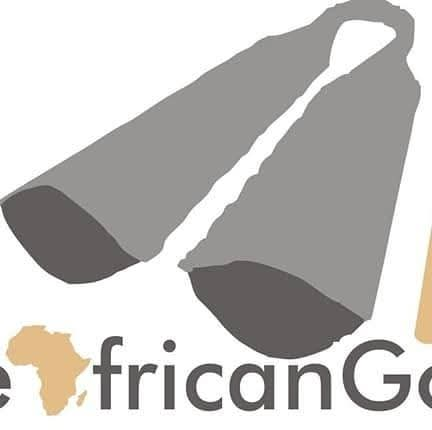
By Frank Meke
If you believe every official statement issued by government on national matters, then you might also believe that a rat and a snake share the same ecosystem.
The shock announcement by the Minister of Art, Culture and the Creative Economy, Hannatu Musa Musawa, suspending the National Festival of Arts and Culture (NAFEST) scheduled to hold in Enugu for an entire week, fits neatly into this paradox. For many observers, the “security concerns” cited as justification appear more like a cleverly crafted alibi than a genuine national emergency.
The minister’s aides were already in Enugu, prepared to headline the festival, project its success, and harness the optics that typically accompany such events. Her advance team presence in the state did not imply ignorance of Nigeria’s current security rating by the U.S. government or the spate of violent attacks that have gripped various parts of the country.
Yet, this sudden awakening—after logistics had been finalised, vendors mobilised, and 26 states fully accommodated by the Enugu State Government—raises more questions than answers.
Was Kebbi’s kidnapping tragedy the first of its kind? Did the minister only just realise that insecurity exists in Kwara, Niger, Kaduna, or elsewhere? Did she seek the counsel of the National Security Adviser when the President himself cancelled his trip to South Africa because of heightened threats? If national security was truly the yardstick, wouldn’t this postponement have come much earlier?
Instead, the minister waited until everyone had touched down in Enugu—only to abruptly pull the plug, leaving organisers, delegates, and host communities stranded.
History Teaches Us Otherwise
There were periods in Nigeria’s recent past when NAFEST served as a tool for healing, unity, and peace—even in the most troubled environments.

During one of Rivers State’s most turbulent phases, then-Governor Nyesom Wike formally bid to host NAFEST. Despite strong political pressures—Rivers being governed by the opposition at the time—Otunba Segun Runsewe, then Director-General of NCAC, championed the festival’s power to change narratives and promote peace. The result? One of the most successful, unifying, and impactful NAFEST editions to date.
Similarly, the National Association of Nigeria Travel Agencies (NANTA), against widespread fear, proceeded with its AGM in the South-South region of Rivers state amid security concerns. The outcome was a remarkable rebranding of Rivers State as a safe destination. Delegates walked freely through the streets, supported the local economy, and helped spotlight the region positively. Nanta didn’t push back on the patriotic gesture and Nigerians were proud.
Even in Plateau State—during the height of ethno-religious tensions—NAFEST stood as a symbol of hope. Runsewe and his team at NCAC travelled despite real risks, believing in culture’s power to rebuild trust. And they were right.
Given these precedents, the decision to cancel NAFEST in Enugu under the guise of “national security mood” stretches logic to its limits.
The Igbo Hospitality Factor
If there is any region in Nigeria known for protecting and honouring guests, it is the Southeast. The Igbo ethos places immense value on hospitality and communal honour. Enugu, in particular, has consistently demonstrated this spirit.
To suggest that visitors would be endangered there—without clear, specific threats—undermines this longstanding cultural truth.
The Real Issues Behind the Curtain
While the minister’s statement leans heavily on “security concerns,” insiders hint at a very different story:
- Federal funding for NAFEST was reportedly approved only on paper—without cash backing.
- The Enugu State LOC was battling internal disorganisation and late fund release.
- Vendors had not been fully mobilised until late Thursday night.
- Key preparations lagged behind schedule.
In fact, allegations suggest that the Enugu Commissioner for Tourism and LOC Chairperson, Dame Ugochi Madueke, supervised expenditures with excessive centralisation—down to the payment of canopies—creating bureaucratic bottlenecks that may have endangered the event’s success.

Viewed together, these factors paint a picture of operational crisis—not national security—as the true driver of the postponement.
A Ministry Lost in Optics
The pattern is becoming familiar: lofty announcements, sensational optics, and little substance. The ministry under Hannatu Musa Musawa has struggled to attract national funding, execute large-scale projects effectively, or deliver tangible value to Nigeria’s cultural tourism sector.
From signing countless MOUs to pitching traffic management expertise for Lagos’ Detty December, the emphasis appears more on visibility than outcomes. This NAFEST setback further deepens concerns about leadership capacity within the ministry.
The Final Question
Is this truly about protecting lives—or about shielding institutions from embarrassment?
Is it national security—or administrative failings wrapped in official jargon?

The answer, many believe, will unfold in the coming days as the mechanics behind this dramatic cancellation unravel.
For now, one thing is clear: NAFEST Enugu deserved better—from both the federal ministry and the state. And Nigeria’s cultural tourism sector deserves leadership grounded in vision, competence, and courage—not optics.


